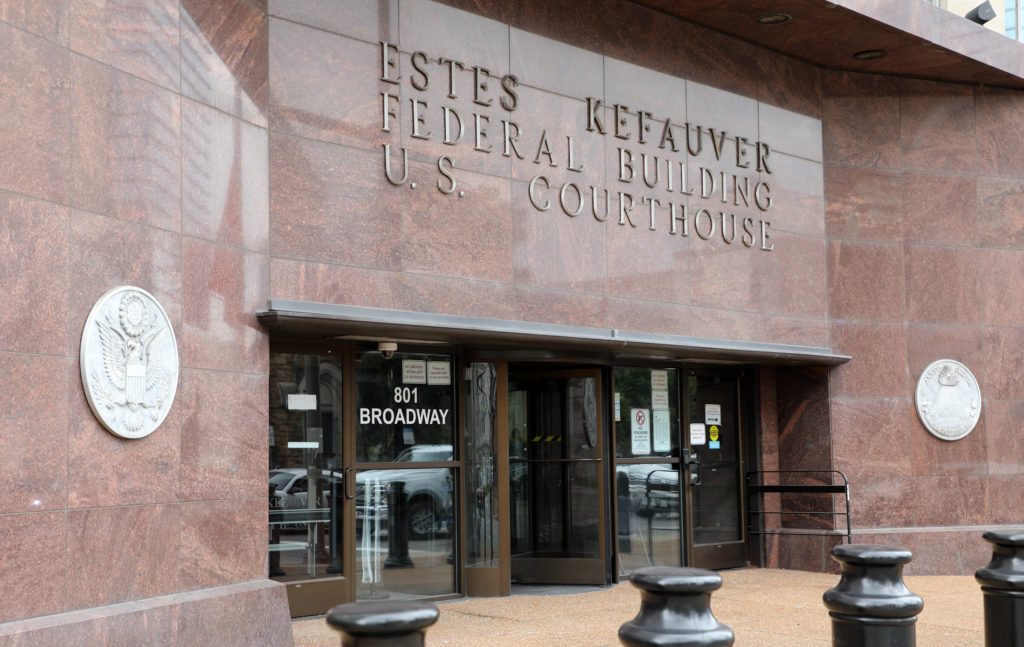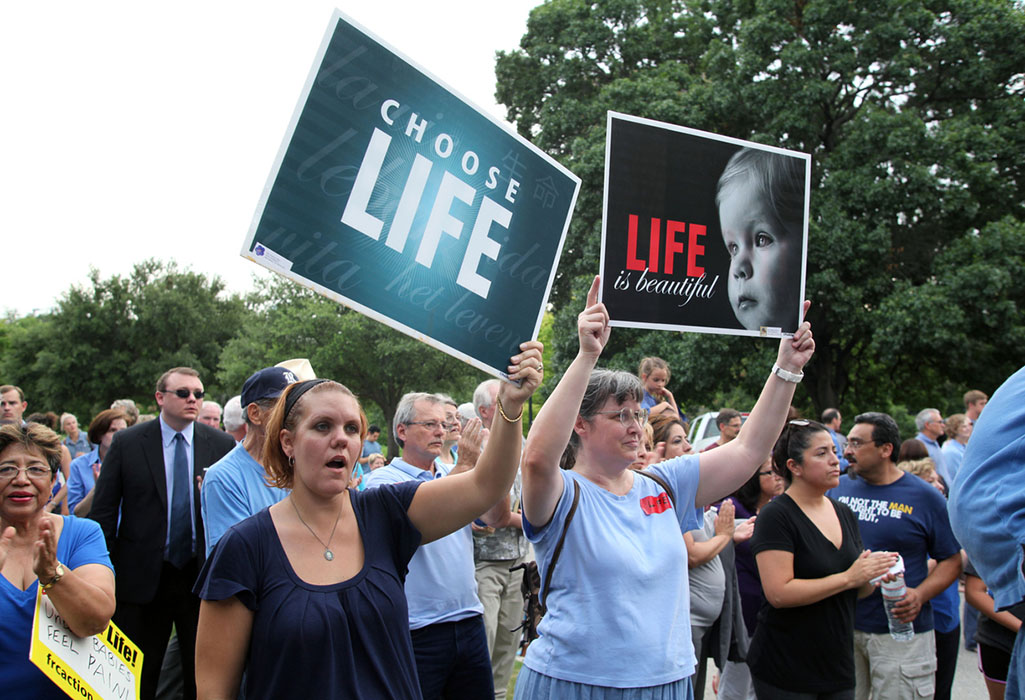
Kate Trammel, left, senior director of advocacy at Prison Fellowship, joined acting ERLC President Brent Leatherwood to discuss prison reforms.
Followers of Jesus should lead the way in advocating with grace for a restorative criminal justice system, Southern Baptist ethics leader Brent Leatherwood said in an online forum.
Leatherwood, acting president of the Ethics & Religious Liberty Commission (ERLC), spoke Oct. 26 to reporters during a virtual event hosted by Prison Fellowship regarding a new survey on the perspectives of Americans in general, and Christians specifically, on the justice system.
Among the findings in the survey conducted by the Barna Group was that “practicing Christians,” as the report designated this category, are 11% more likely than other Americans to agree strongly that a prisoner who has completed his or her sentence deserves “a second chance” at becoming a productive citizen.
The survey also showed practicing Christians are:
- 10% more likely to agree strongly that the criminal justice system should offer opportunities for those who commit crimes to make amends to the victims and community.
- 9% more likely to express strong agreement the primary aim of the system should be to provide restoration for all involved, including the victim, the community and the offender.
- 9% more likely to agree strongly, based on God’s forgiveness of their sins, that former prisoners “deserve a second chance without being assigned a permanent label such as ‘ex-offender,’ ‘felon’ or ‘ex-con.’”
“Of course, it absolutely makes sense that Christians would be more likely to support second chances and more likely to see our criminal justice system as not a system to mete out punishment, though that’s certainly a role, but it’s actually a system to help there be restoration,” Leatherwood said.
“And we know that to be true because we ourselves were once condemned, and thankfully our Savior, Jesus Christ, He paid the sacrifice that we were condemned to.”
Regarding how to describe former inmates, Christians “use words of grace in talking about this subject because we ourselves are recipients of immense grace, grace we are completely undeserving of in a culture that is completely lacking in grace,” Leatherwood said. “What a thing to be known for and what an example to be shown to a watching world that is in desperate need of grace. So words matter.
“Let’s lead well in this moment by first and foremost being a people of grace.”
In recent years, the ERLC and other organizations have partnered with Prison Fellowship, the country’s largest outreach to prisoners, in its efforts to reform the criminal justice system. The ERLC joined Prison Fellowship and two other organizations in 2017 in issuing the Justice Declaration, which urged followers of Jesus to support “proportional punishment,” care for victims of crime, minister to the families of prisoners, preach the gospel and disciple incarcerated men and women.
The coalition welcomed a significant victory in 2018 with the bipartisan passage and signing into law by President Donald Trump of the First Step Act, which was crafted to promote the rehabilitation and societal reentry of prisoners while maintaining public safety.
The executive summary of the survey reported the most significant priorities for both practicing Christians and Americans in general were “in-prison job or educational training programs, followed by a removal of barriers to job training and employment for those with a criminal record.”
Among other findings in the survey:
- 82% of practicing Christians and 73% of the American public said the church should back reforms that give prisoners “a second chance to become successful, contributing members of society.”
- 73% of practicing Christians and 72% of Americans think former inmates should not be refused public or private housing, but only 54% in each category are willing to live in a neighborhood with a person who has a criminal record.
- 78% of practicing Christians and 73% of Americans said their vote is influenced by officeholders’ positions on such reforms as fair sentencing, strengthening prison programs and providing second chances.
- 87% of practicing Christians and 83% of Americans say it is important to provide “safe and humane” conditions in prison because they believe every person possesses “intrinsic value and worth.”
- 86% of practicing Christians and 77% of Americans think adding police in high-crime areas increases safety in a community.
- 23% of practicing Christians said their church is involved in raising awareness about criminal justice.
Kate Trammell, Prison Fellowship’s senior director of advocacy and moderator of the event, said, “If there’s one takeaway here, it’s that Americans generally, practicing Christians in specific, want solutions to keep their neighborhoods safe without sacrificing this deeply held value that every person has dignity.”
Josh Smith, a Tennessee business owner, spoke from experience as a former inmate for marijuana and cocaine trafficking who became a Christian in prison. He has worked on criminal justice reform for 15 years in multiple states and countries and is a member of Tennessee Gov. Bill Lee’s Criminal Justice Reinvestment Task Force.
While he has been out of prison for 19 years, until his pardon by Trump in January of this year, “I could buy an apartment complex, but I just couldn’t rent an apartment in one,” Smith said.
Ninety-five percent of inmates will be out of prison eventually, “and we should invest in those as a community to help make that change in their life to give them the best chance of success and to get out [of prison],” Smith said.
“We have to make prison a place of transformation,” he said. “[W]e have to look at [inmates] and say, ‘How do we help change their life?’” He urged “giving them incentives to become that better person in society and to earn their right to come back and join the rest of us.”
Leatherwood encouraged Christians to contact their legislators regarding criminal justice reform.
“When they hear from pastors on these issues, when they hear from engaged Christians on these issues, it often helps change their perspective and helps them understand the moral demand that the gospel has placed on Christians and how that works out in the public square,” he said.
For purposes of the survey, Barna defined practicing Christians as “those who identify as Christian, say their faith is very important in their life and who attended a religious service or gathering in the past month.”
At the 2013 SBC annual meeting, messengers approved a resolution expressing “support of legislative policies that seek to reduce high incarceration rates without jeopardizing public safety” and affirmed that “probation and parole may serve as a wise, just, and effective alternative to prolonged incarceration for certain nonviolent offenders.”
The forum can be viewed here.
(EDITOR’S NOTE – Tom Strode is Washington bureau chief for Baptist Press.)


